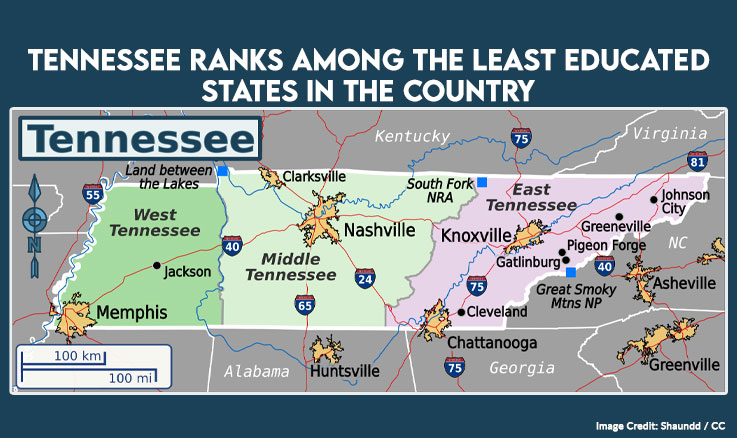By Samuel Stebbins [24/7 Wall St. via The Center Square] –
Education levels are on the rise in the United States. According to newly released estimates from the U.S. Census Bureau’s American Community Survey, 79.9 million American adults – 35% of the nation’s 25 and older population – have a bachelor’s degree or higher. As recently as five years ago, fewer than 33% of American adults had a bachelor’s degree.
A college education has long been a key driver of upward economic mobility in the United States. However, enrollment costs at colleges and universities have soared in recent years, making a four-year postsecondary education prohibitively expensive for many working- and middle-class families.
Cost is not the only factor to consider before attending college. The chosen career path is another. For some business owners and those pursuing a career in the trades, the military, law enforcement, or public safety, a bachelor’s degree may not be necessary. Regardless of personal considerations, in some parts of the country, Americans are far less likely to have a four-year college degree than in others. Here is a look at the highest paying jobs you can get without a college degree.
In Tennessee, an estimated 30.5% of adults 25 and older have a bachelor’s degree or higher, below the 35% share nationwide and the 12th lowest among all states.
Nationwide, median earnings among workers with a bachelor’s degree stood at $61,073 in 2021, compared to $35,019 among working adults with no more than a high school diploma. Due in part to lower-than-average bachelor’s degree attainment rates, the median earnings among all working adults in Tennessee is $41,181 a year, less than the comparable national median of $45,943.
All income and education data in this story is from the U.S. Census Bureau’s 2021 American Community Survey. Annual unemployment rates are from the Bureau of Labor Statistics.
| Rank | State | Adults with a bachelor’s degree or higher (%) | Median annual earnings, all working adults, 2021 ($) | 2021 unemployment rate (%) |
|---|---|---|---|---|
| 1 | West Virginia | 24.1 | 39,449 | 5.0 |
| 2 | Mississippi | 24.8 | 37,148 | 5.6 |
| 3 | Arkansas | 25.3 | 37,936 | 4.0 |
| 4 | Louisiana | 26.4 | 40,562 | 5.5 |
| 5 | Kentucky | 27.0 | 40,448 | 4.7 |
| 6 | Alabama | 27.4 | 40,362 | 3.4 |
| 7 | Nevada | 27.6 | 41,237 | 7.2 |
| 8 | Oklahoma | 27.9 | 40,163 | 3.8 |
| 9 | Indiana | 28.9 | 42,955 | 3.6 |
| 10 | Wyoming | 29.2 | 41,898 | 4.5 |
| 11 | New Mexico | 30.1 | 39,826 | 6.8 |
| 12 | Tennessee | 30.5 | 41,181 | 4.3 |
| 13 | Iowa | 30.5 | 44,644 | 4.2 |
| 14 | Idaho | 30.7 | 40,800 | 3.6 |
| 15 | Ohio | 30.7 | 43,794 | 5.1 |




2 Responses
A university education is not as valued as it once was, since much of what is taught represents a very one-sided political/world view. As can be said for elementary and secondary education today, students are taught WHAT to think, not how. This is, quite simply, indoctrination.
I have lived in several states whose inhabitants are decorated with degrees from one end to the other. I respect the people here in Tennessee far more than the inhabitants of anywhere else I have been. Morals and values go a long way towards making a state a great place to live – and Tennessee is!
Sure Tn. may not be as so called educated as some parts but make up in common sense! A lot of these educated are working in fast food joints with a worthless degree and thousands of dollars in debt.